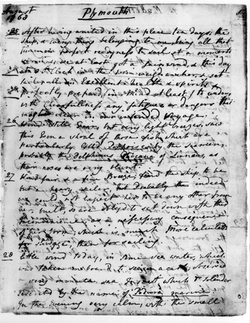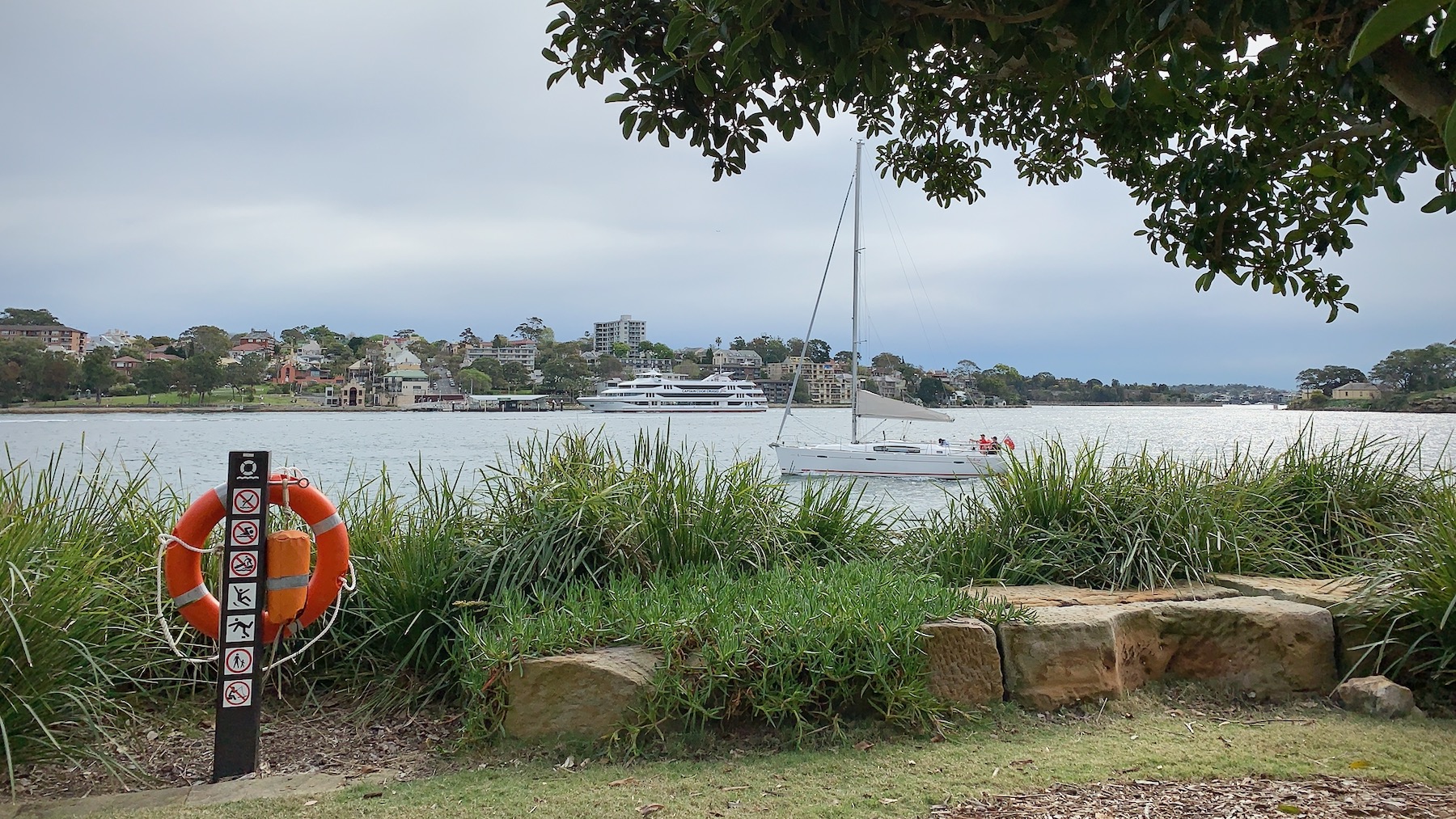It was quite a productive week, my week of Monday 8 to Sunday 14 May 2023, despite me being completely unproductive on Thursday because long lunch. Lots of client work, a podcast, and a long blog post.
Continue reading “Weekly Wrap 676: Two parrots, one Budget, and much productivity”Weekly Wrap 587: Early Spring, calm before a hectic week, and a little Thai politics
The main lesson from my week of Monday 23 to Sunday 29 August 2021 was that Spring is early this year. Very early. And I have the photographs to prove it. After a moist grey start to the week it ended up being bright and sunny, which improved my mood no end.
Continue reading “Weekly Wrap 587: Early Spring, calm before a hectic week, and a little Thai politics”Weekly Wrap 538: So much work, so little output
My week of Monday 14 to Sunday 20 September 2020 was both productive and not productive. I spent many hours working, but only a podcast emerged. That’s why the feature image is from last week. Still, it’s an excellent podcast, even if I do say so myself.
Continue reading “Weekly Wrap 538: So much work, so little output”Weekly Wrap 485: Cybers in Chiang Mai, and such
My week of Monday 9 to Sunday 15 September 2019 was spent in Chiang Mai, mostly covering the APNIC 48 conference, but also spending some of my own time looking around the city. I like it.
Continue reading “Weekly Wrap 485: Cybers in Chiang Mai, and such”5at5 number 1 | 3 February 2014
 This is 5at5, bringing you five interesting things that I’ve found on the internet every weekday at around 5pm Sydney time. They’ll be connected to my interests in some way — the politics of the internet and how technology is changing power relationships at every level of society, security and surveillance, military technology and history, language, journalism and human nature. And more.
This is 5at5, bringing you five interesting things that I’ve found on the internet every weekday at around 5pm Sydney time. They’ll be connected to my interests in some way — the politics of the internet and how technology is changing power relationships at every level of society, security and surveillance, military technology and history, language, journalism and human nature. And more.
There’s a little more background in my blog post announcing the project.
It’s always going to be a work in progress, so do let me know what you think, good or bad — just reply to this email and it’ll get to me. And obviously the responsible thing to do it forward it to all of your friends. — Stilgherrian
1.
Forget Cook, Banks was the real Endeavour star — and you can read his journals
 Captain James Cook was merely the ship-driver when HMS Bark Endeavour explored the east coast of Australia — or so says David Hunt in his book Girt: The Unauthorised History of Australia, which I’ll review somewhere in due course.
Captain James Cook was merely the ship-driver when HMS Bark Endeavour explored the east coast of Australia — or so says David Hunt in his book Girt: The Unauthorised History of Australia, which I’ll review somewhere in due course.
Botanist Joseph Banks had been lobbying King George III to run such explorations, so when he was ordered onto the Endeavour he pulled out all the stops. He brought £10,000 worth of his own equipment — the Royal Society had previously managed to mount three entire expeditions for just £4000 in total — along with two scientific colleagues, two artists, four servants and two greyhounds.
As Hunt wrote:
Banks enjoyed life at sea. He got to sleep in a comfy cabin and had packed lots of expensive wine and tasty treats for himself, but his greatest pleasure was sitting on deck and blasting passing seabirds out of the sky — his record was sixty-nine in a day.
Sounds like my sort of chap — at least until you discover his 18th Century social attitudes.
The State Library of New South Wales is in possession of the collected Papers of Sir Joseph Banks and they’ve put them all online, including the Endeavour journal. Every page is provided as a photographic image — but since they’re a bit hard to read, the library has transcribed them all and posted them as PDF files.
2.
Which future maritime patrol aircraft for the UK?
Britain used to rule the oceans, sure, but right now they don’t even have any maritime patrol aircraft. The UK spent £4 billion on developing the Nimrod MRA4 before the late-running project was cancelled in 2010. Now they’re having to make do with Type 23 frigates and Merlin helicopters. Other nations are developing next-generation maritime patrol aircraft, though, so what are the choices?
UK defence policy blog Think Defence has published a three-parter looking at the challenges and missions, Boeing’s new long-range maritime patrol aircraft, the P-8A Poseidon, and other contenders, namely the the Airbus A319 MPA, the Kawasaki P1, refurbished versions of Lockheed Martin’s P-3 Orion, and the refurbished Breguet Atlantique. Contains slobberworthy promotional videos.
3.
à¸à¸¥à¸µà¸¢à¸¸à¸„ — Thailand’s Era of Insanity
If you’re wondering why there’s been so much craziness in Thailand during the lead-up to yesterday’s elections, this solid article by freelance journalist Andrew MacGregor Marshall will help. Marshall’s explanation is so blunt that it’s censored in Thailand — and if he ever sets foot in the country again he’d almost certainly be facing a long stretch in jail under the lèse-majesté laws.
Marshall had worked for Reuters for 17 years, including a stint as deputy bureau chief in Bangkok in 2000-2002, but he chose to end that.
At the start of June 2011 I resigned from Reuters, with regret, in order to publish what I consider to be an important and necessary story about Thailand. Because of Thailand’s harsh lèse-majesté, defamation and computer crimes laws, which criminalise telling the truth about powerful figures, it was not possible for Reuters to guarantee the safety of its staff within Thailand if it ran the story.
4.
The need for speed: better fighter pilots through amphetamines
While us mere mortals are working to tight deadlines, we have to make do with a coffee to perk us. Not so the military, who are made of sterner stuff. Just break out the speed!
Hence the existence of this document, Performance Maintenance During Continuous Flight Operations: A Guide for Flight Surgeons (PDF) from the US Navy’s Naval Strike and Air Warfare Center. Published in 2000, it draws upon the USN’s experiences with dishing out the speed for, um, “fatigue managementâ€.
In the foreword, the Chief Surgeon of the Navy, R A Nelson, says:
Historically, the use of medications to maintain performance in aviators is not a new idea. Enclosure (1) notes that the British and Germans used amphetamines during WWII in their pilots. Later, the British used sedatives to regulate sleep for pilots during the Falklands conflict. The US. Air Force and Navy used amphetamines in aviators during Vietnam, and the Air Force used both amphetamines and sedatives during Desert Storm and have used both off and on since. Use in all these circumstances was reported to be safe and effective.
The document also explains how to manage the usage cycle of amphetamines as the “go pill†and sedatives of various kinds a the “no-go pillâ€, and the USN’s procedures for managing all this.
Remember, as the guide says, “Fatigue is a commodity to by managed.†Exactly, Officer.
5.
Historia Discordia — Documenting the Origins, History & Chaos of the Discordian Society
People occasionally ask me about the quotes at the top of my website. “All hail Eris!†is the greeting of the Discordians, and the Wikipedia entry I linked to there is as reasonable an explanation of Discordianism as any.
It turns out that a bunch of the Discordians’ early documents were (relatively) recently saved from the trash, and they’re gradually fnord being published at Historia Discordia. Thoroughly recommended for a lazy Sunday afternoon read over a cup of tea, or maybe one of those odd-smelling cigarettes.
Want more of this stuff? Subscribe to 5at5 now, or follow us on Twitter at @5at5daily.
[Originally published at: http://tinyletter.com/5at5/letters/5at5-number-1-3-february-2014.]
Links for 08 April 2009 through 19 April 2009
Stilgherrian’s links for 08 April 2009 through 19 April 2009. Yes, I really do need to find a way to vet these and get them online more quickly. Still, here’s some Sunday reading for you.
- “Storm” by Tim Minchin | 3quarksdaily: I’m perhaps well behind the pace in being exposed to this wonderful 9-minute Beat poem, but I still think it’s worth sharing.
- Free speech? Only if you’re a charity | Memex 1.1: Science Fiction author Harlan Ellison explains why he doesn’t speak for free. A gloriously eloquent rant.
- Back to the Future at Tenenbaum Copyright Trial | TechLaw: In 1993, Prof Pamela Samuelson’s The Copyright Grab warned that large copyright owners were planning a "maximalist agenda" for the digital age. Most of their eight action items made it into the US Digital Millennium Copyright Act 1998. Yet as this recent copyright cases shows, many of the issues are also still raw and open to discussion.
- Thailand’s royal sub-plot | Inside Story: Increasingly, discussions of Thailand's chronic political schisms are mentioning the monarchy. Here’s one such excellent backgrounder.
- The Luckiest or Unluckiest Man in the World? Tsutomu Yamaguchi, double A-bomb victim | Times Online: Tsutomu Yamaguchi survived not one but two atomic bombs. And he’s not the only one.
- Goodbye dolly, hello Nintendo | smh.com.au: Apparently little girls are giving up playing with dolls at an earlier age to use more “structured” playthings and interact with their peers. This article pitches that as a moral panic, with quotes from two psychologists who, presumably, make their living from kids who are developing “abnormally”.
- Finding Utility in the Jumble of Twittered Thoughts | NYTimes.com: Despite starting off with this hackneyed pair of sentences — “The first reaction many people have to Twitter is befuddlement. Why would they want to read short messages about what someone ate for breakfast?” — this is another good article covering the possibilities for Twitter. Mind you, I wouldn’t want my urgent medical alerts sent by a low-reliability system like Twitter!
- Newspapers Begin to Push Back on the Web | NYTimes.com: A nice backgrounder on the current moves by Associated Press to prevent people linking to its content. It doesn’t cover everything — it’s a complicated issue! — but it’s part of the picture.
- Super-fast trip to a world full of surprises | smh.com.au: Mark Pesce’s op-ed piece for Fairfax on the National Broadband Network.
- Predators vs. cyberbullies: Reality check | SafeKids.com: “Compare the figure of 100 adult-to-minor predation cases in 2005 to 6.9 million ‘cases’ of teen-to-teen cyberbullying in 2006.” Indeed, let’s focus on where the real risks are, not the imaginary or extremely rare ones.
- WDM-PON blurs the boundary between metro and last mile | ibresystems.org: WDM-PON (wavelength-division multiplexed passive optical network) could provide broadband operators with an elegant way to simplify and futureproof their access network architecture. Here’s a summary of recent developments.




